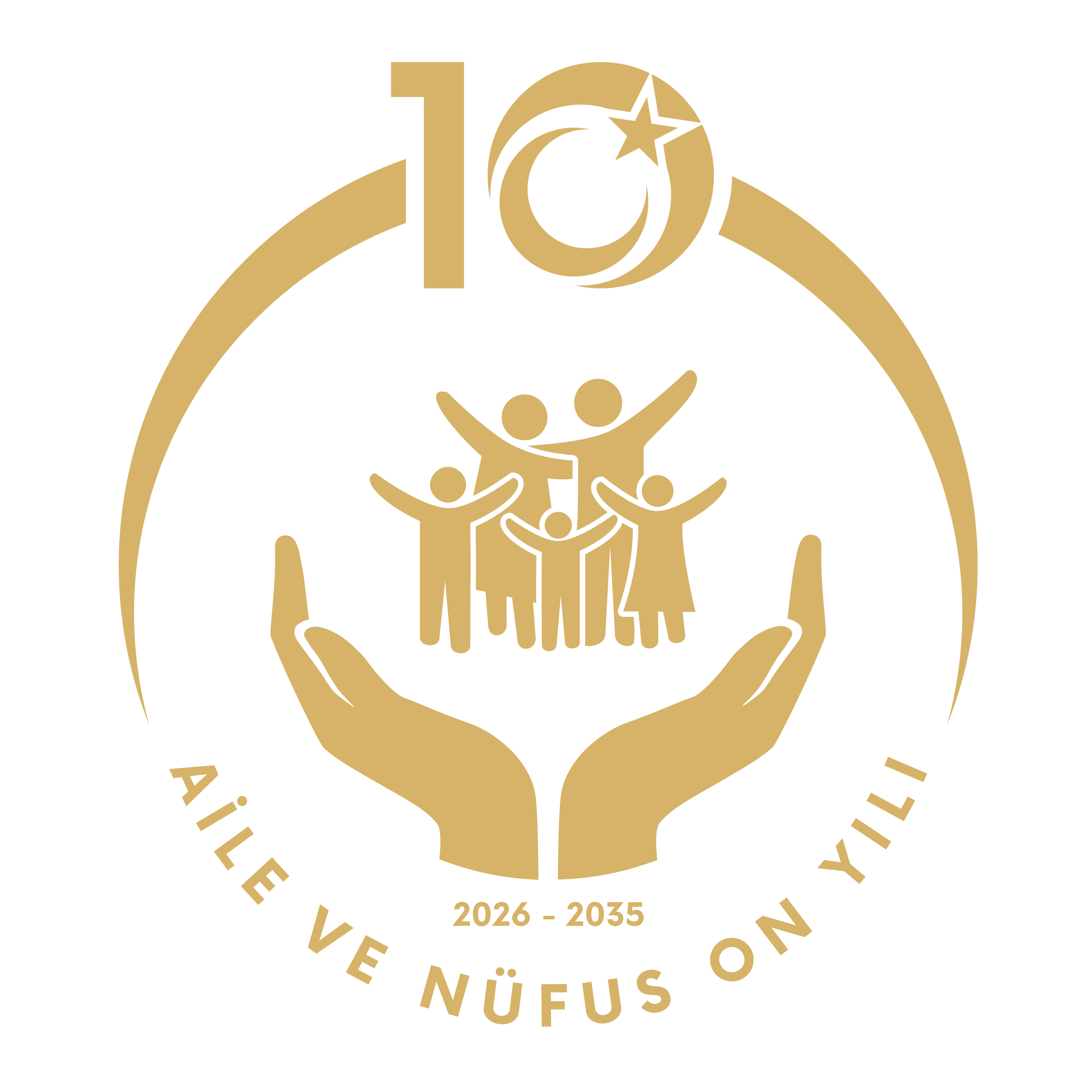
Minister Göktaş "The Ministry has prepared the 1st year interim evaluation report on the implementation of the National Action Plan on the Rights of Persons with Disabilities"
Minister of Family and Social Services Mahinur Özdemir Göktaş stated that the Ministry completed the first year of the implementation of the first National Action Plan on the Rights of Persons with Disabilities and prepared the interim evaluation report and said, "As a result of the work carried out, the Ministry will establish a Family-Based National Early Intervention System to monitor and support children with disabilities from their birth to the early years of primary school. A pilot study will be launched in cooperation with UNICEF and relevant public institutions to establish the system."
Minister Göktaş reminded that the National Action Plan for the Rights of Persons with Disabilities covering the years 2023-2025 started to be implemented with precision by all stakeholders with the Presidential Circular published on February 3, 2023 and said, "The Ministry has completed the 1st year in the implementation process of the first National Action Plan for the Rights of Persons with Disabilities, including 316 activities determined by taking into account the needs arising from disability, from employment to accessibility, from education to healthcare, from participation in social life to the protection of rights. The interim evaluation report prepared under the coordination of the Ministry was shared with the members of the Monitoring and Evaluation Board on the Rights of Persons with Disabilities, responsible for monitoring the Action Plan, at its meeting on May 21."
Noting that efforts to disseminate the rights-based approach in disability and to raise awareness were continued in the one-year period, Göktaş said, "In this context, awareness raising activities on the rights of persons with disabilities were organized for different sectors, especially public institutions. Progress was made in promoting, mainstreaming and monitoring accessibility. Training workshops were organized to increase the technical capacity of public institutions on the built environment and accessibility of information and communication technologies. The area of use of the Accessibility Logo was expanded to include printed and digital publications and visual materials. In addition, efforts were made to expand accessibility in different sectors such as libraries and informatics."
Establishing a Family-Based National Early Intervention System
Göktaş stated that within the scope of the studies carried out, a Family-Based National Early Intervention System would be established to monitor and support children with disabilities from birth to the first years of primary school and said: "Studies were carried out to develop an early intervention system to ensure that children with special needs had access to quality care, healthcare, protection and education services with a holistic and family-oriented approach from the time of their birth to primary school. A pilot study will be launched in cooperation with UNICEF and relevant public institutions to establish the system."
Quality Standards for Care Services will be developed
Göktaş reminded that the institutions affiliated to the Ministry were evaluated within the scope of the Quality Standards for Care Services (BHKS) to provide better service for persons with disabilities continuing their lives in care centers, and said, "With these standards, strengthening the institutions providing long-term care services is ensured. It is aimed to increase the quality of the services provided in these institutions by making incentive payments to the institutions determined to comply with the Quality Standards for Care Services among private care centers for persons with disabilities. In the coming period, the Ministry will carry out studies to develop specialized care quality standards to guide these centers so that specialized care and rehabilitation centers can be opened."
Stating that technological developments were being followed in the quality assessments of institutions providing long-term care services, Göktaş said that the quality information management system KALDES would be developed independently by using information systems to assess the compliance of care centers with quality standards.
Disability-sensitive disaster management services are being developed
Minister Göktaş also stated that the Ministry was working for the development of disability-sensitive disaster management services, noting the following:
"The Ministry is implementing the project titled 'Development of Disaster and Emergency Plans in Institutions Providing Long-Term Care Services for Persons with Disabilities and Older Persons'. This project aims to develop disaster management plans for persons with special needs according to the type of needs of the individual. In addition, the Ministry is improving efforts with stakeholder institutions to develop a disaster management model that is sensitive to persons with disabilities and older persons. In the coming period, the Ministry will initiate efforts to build tent cities and container cities accessible to persons with disabilities and older persons within the scope of post-disaster recovery efforts in 11 provinces affected by the February 6 earthquakes. In these provinces, the Ministry will plan the rehabilitation services needed by persons with disabilities and older persons in need of care and ensure that such persons benefit from care models."








